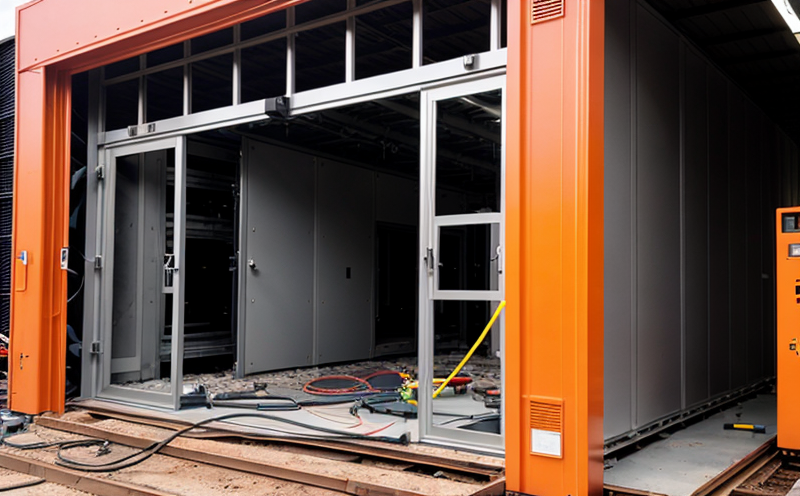IEC 63115 Thermal Management and Safety Testing of Stationary Lithium Batteries
The IEC 63115 standard is a critical tool for ensuring the safety, performance, and longevity of stationary lithium batteries. This standard addresses thermal management and electrical safety issues, which are paramount in today’s energy storage systems (ESS) and battery-operated devices.
Stationary lithium batteries play an essential role in various sectors such as renewable energy integration, uninterruptible power supplies, and large-scale energy storage. The increasing demand for sustainable and reliable ESSs highlights the importance of rigorous testing to ensure that these systems are safe and efficient under all operational conditions. IEC 63115 provides a comprehensive framework for assessing the thermal stability, electrical safety, and mechanical integrity of stationary lithium batteries.
The standard covers tests designed to evaluate the battery’s performance in extreme temperature conditions, overcharging scenarios, short-circuit events, and other potential hazards that could lead to thermal runaway. By adhering to IEC 63115, manufacturers can demonstrate compliance with international safety standards and ensure their products meet rigorous quality benchmarks.
Understanding the requirements of this standard is crucial for quality managers, compliance officers, R&D engineers, and procurement professionals involved in the development and certification of stationary lithium batteries. Compliance ensures not only regulatory adherence but also enhances product reliability and market competitiveness.
Scope and Methodology
| Test Parameters | Methodology |
|---|---|
| Thermal Cycling | The battery is subjected to a series of temperature cycles, simulating real-world conditions. |
| Overcharging Tests | Battery is charged beyond its nominal capacity to assess its reaction under stress. |
| Short-Circuit Testing | The battery is connected in a short-circuit condition to evaluate thermal response and protection mechanisms. |
| Overdischarge | Battery is discharged beyond its nominal capacity to check for safety and performance degradation. |
| Vibration Testing | The battery undergoes mechanical stress through vibration tests to ensure structural integrity. |
IEC 63115 mandates specific testing protocols designed to evaluate the thermal stability, electrical safety, and mechanical integrity of stationary lithium batteries. Compliance with these stringent requirements ensures that the batteries meet international safety standards and are reliable under various operational conditions.
Benefits
- Enhanced Product Reliability: Ensures consistent performance across all environmental and operational conditions.
- Compliance with International Standards: Meets the stringent requirements of IEC, ASTM, EN, and other relevant international standards.
- Increased Market Competitiveness: Demonstrates adherence to global safety and quality benchmarks, enhancing brand reputation.
- Reduced Risk of Failure: Identifies potential issues early in the development process, reducing risks associated with field failures.
- Promotes Sustainable Energy Solutions: Supports the transition towards renewable energy by ensuring the reliability and safety of ESSs.
- Improves Customer Confidence: Builds trust with customers by providing evidence of rigorous testing and compliance with industry standards.
The benefits of adhering to IEC 63115 extend beyond regulatory compliance; they also contribute to a safer, more reliable energy infrastructure. By investing in comprehensive thermal management and safety testing, manufacturers can ensure that their products are robust enough to withstand the rigors of real-world use.
Eurolab Advantages
At Eurolab, we pride ourselves on providing cutting-edge testing solutions for all your stationary lithium battery needs. Our state-of-the-art facilities and experienced technical staff ensure that your products undergo the most rigorous and accurate testing possible.
- Comprehensive Testing Capabilities: We offer a full range of thermal management and safety tests, including those specified in IEC 63115.
- Expert Technical Staff: Our team consists of highly qualified engineers with extensive experience in battery testing and certification.
- Accurate Reporting: We provide detailed reports that clearly document the results of all tests, ensuring transparency and reliability.
- Compliance Assurance: Our services are designed to help you meet international standards and regulatory requirements.
By partnering with Eurolab, you can trust that your products will receive the highest level of testing and certification. We are committed to helping you deliver safe, reliable, and compliant products to the market.





